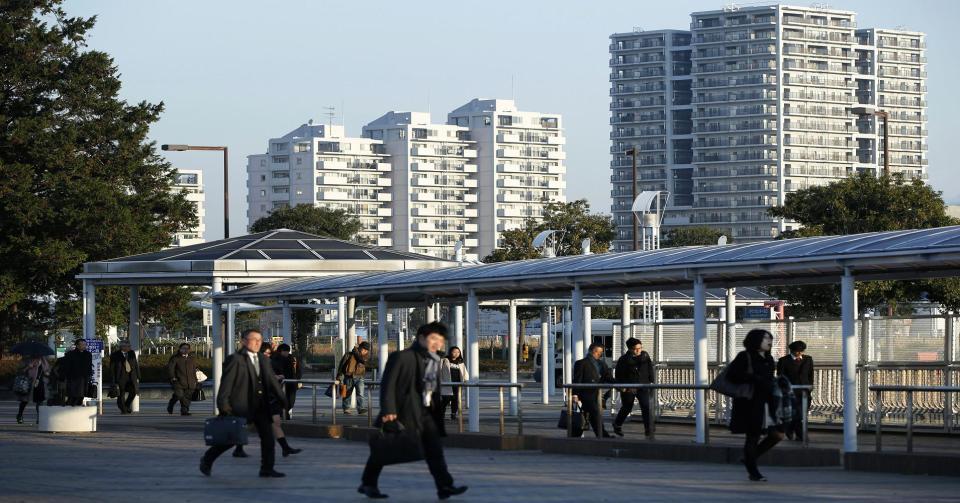Finally, Tokyo land prices to nudge higher

Land prices in Japan have been falling since its asset bubble burst in the early 1990s, but optimism is taking hold among Tokyo's real estate professions as prices look set to rise, say analysts.
"Investment from overseas buyers and the demographic concentration in Tokyo will drive up land prices over the next couple of years," said Nomura (8604.T-JP)'s Japan housing and real estate analyst Daisuke Fukushima. "Japan's population may be shrinking, but Tokyo's population has continued to rise."
Since the asset bubble burst in the early 1990s, land prices in Japan have been on a downward trend. And the country still has a long way to come back from its glory days.
At the peak of the real estate bubble in the late 1980s, the 1.32 square mile of Imperial Palace grounds in the center of Tokyo was said to be worth more than all the real estate in California.
Despite the recent rally triggered by the economic policies of Shinzo Abe, even the stock market is still way off 39,815, the historical high hit in 1989.
Real estate prices tend to trail other asset classes, but now land prices – at least in Tokyo – are set to rise by an annual pace of 10 percent, said Fukushima.
Most industry professionals are optimistic too. Over 50 percent of respondents in a survey published on January 29 by NLI Research believe the outlook for Japan's real estate market is "good".
"Real estate industry professionals are optimistic," after some big deals came through, said NLI Research Institute Real Estate Investment Senior Analyst Mamoru Masumiya.
Billion dollar deals completed in 2014 include the Singapore sovereign wealth fund's acquisition of Pacific Century Pace Marunouchi for $1.7 billion and the Meguro Gajoen office complex for $1.26 billion, according to Real Capital Analytics data.
Tokyo is its own island
One of the pillars of Abenomics, unprecedented monetary easing, has driven down interest rates and "nursed back the demand for property investments", said Nomura's Fukushima.
But one thing Abenomics hasn't changed is the concentration of people and assets in Tokyo, Japan's capital. In 2014, the number of people moving into Tokyo increased by 2,695 on year to 63,976, according to a note by Deutsche Bank (DBK-DE) real estate analyst Yoji Otani, which "looks firm compared to their [other] big cities."
And that insulates Tokyo somewhat from the rest of the country. In the fiscal 2014, land prices in the Tokyo region rose by 0.9 percent on-year, even though prices across Japan fell by 0.6 percent.
Peak approaching
The long awaited recovery in land prices may peak quickly, however.
Just over half of the respondents in the NLI Research survey believe property prices will peak out in 2016-2017.
Read More Foreigners add to Australia housing bubble fears
And the outlook is fragmented.
Industry professionals are bullish about the hotel sector: "The high spenders keep on coming: and Chinese tourists outspend them all," said NLI's Masumiya.
On the other hand, the industry is less bullish on residential rental property; just 11.2 percent currently expect prices to rise going forward, down from 13.3 percent in October 2013.
Aging demographics is a main headwind, but "stagnating household incomes have made it tough to lift rents and home sales prices despite rising construction costs," he said.

 Yahoo Finance
Yahoo Finance 
